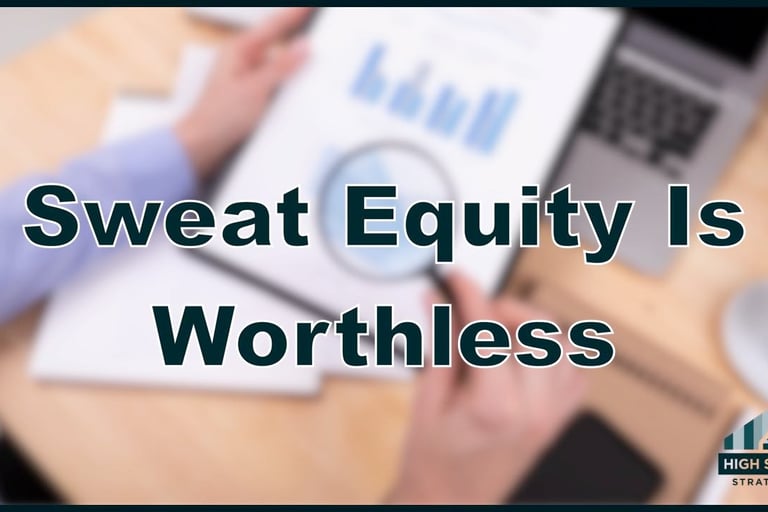The Myth of Sweat Equity: Why Hard Work Alone Doesn't Build Business Value
One of the toughest truths in business valuation is that hard work, on its own, isn’t worth much—at least not to a buyer or investor.
One of the toughest truths in business valuation is that hard work, on its own, isn’t worth much—at least not to a buyer or investor. Entrepreneurs often assume that the time, energy, and sacrifice poured into building a business will be rewarded through a high valuation when it comes time to sell. But the market doesn’t work that way. Buyers don’t pay for effort—they pay for results.
This is the harsh reality of sweat equity. The hours spent grinding, the vacations skipped, the friendships strained, the family time sacrificed—none of these are assets. They are sunk costs. The return on that investment must show up in the form of profits, scalability, and a systemized business model. Without that, sweat equity becomes an emotional argument, not a financial one.
The business world is full of people who worked 70+ hour weeks for years, only to discover that their company’s value is far less than they assumed—sometimes effectively worthless. No amount of late nights can justify a lack of profitability, repeatable revenue, or leadership succession. Sweat equity may build character, but character doesn’t go on a balance sheet.
That doesn’t mean hard work has no place. Certainly, a baseline level of discipline, resilience, and drive is required to start and grow a business. But overwork without outcomes isn’t a virtue—it’s a red flag. In many cases, it signals a broken business model rather than a heroic founder.
The goal of any entrepreneur should be to build a business that runs efficiently—not one that runs only because the founder never sleeps. Businesses that are overly dependent on the owner's labor don’t command high valuations. Instead, they repel buyers who don’t want to inherit a burnout machine.
Here are a few questions that every founder should ask:
Is the business generating consistent profits?
Could someone else step in and run the company successfully?
Are prices high enough to reflect the true value delivered?
Are systems and processes in place to reduce reliance on any one person?
If the answer to these is “no,” then it’s time to work less and think more. Strategic thinking, delegation, and systems-building will create more enterprise value than another 10-hour day. The goal is not to be the hardest-working person in the room—it’s to build something that works whether you’re in the room or not.
In truth, the path to higher valuation often requires doing less—not more. Letting go of the idea that hustle alone creates value is liberating. It creates space for smarter work, clearer strategy, and more sustainable outcomes. A scalable business isn’t one that needs more of the founder—it’s one that thrives with less of them.
Hard work has its place, but value creation requires more than effort. It requires intention, discipline, and results that buyers can see and believe in.


